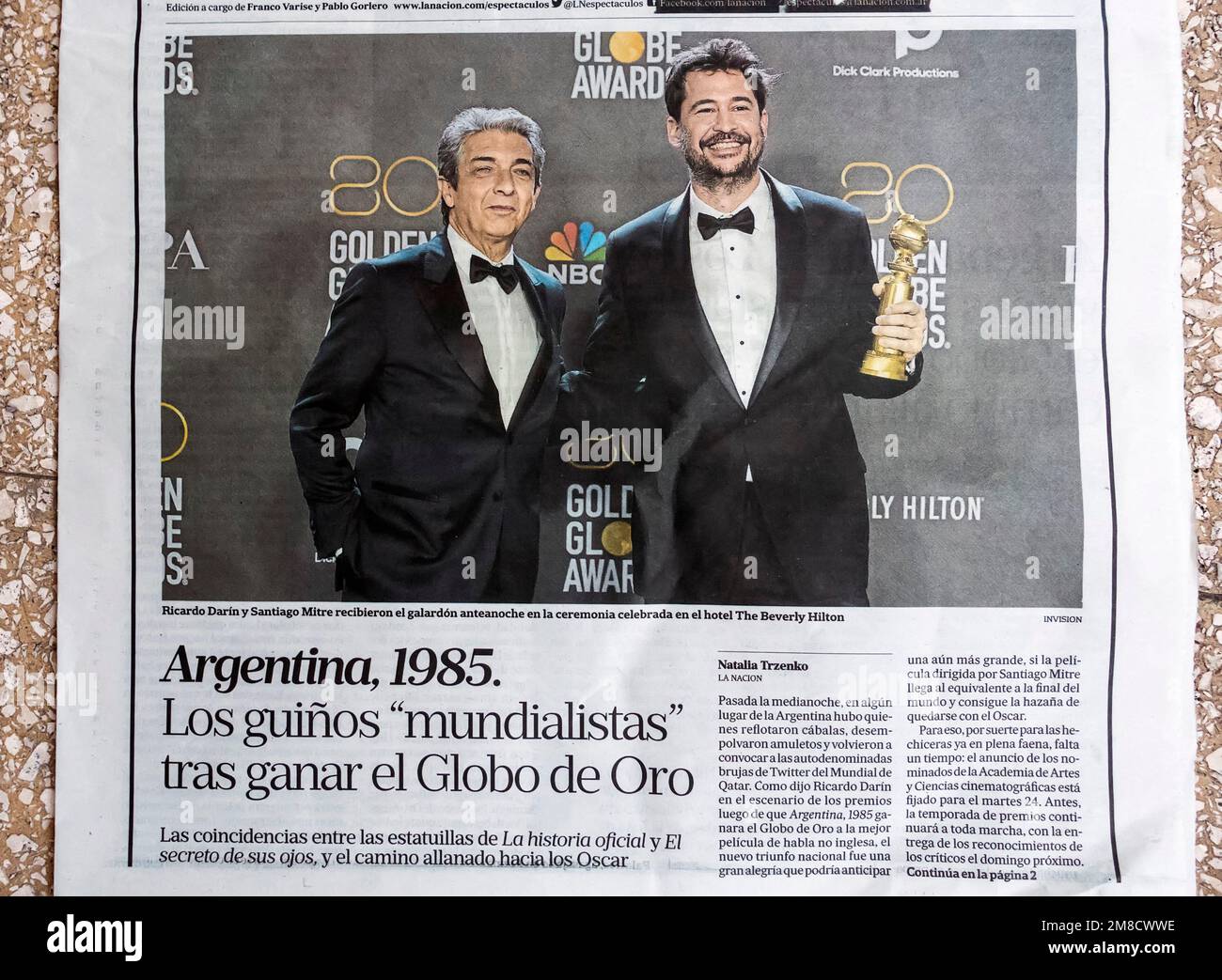The Golden Globe Award for Best Foreign Language Film, presented annually by the Hollywood Foreign Press Association (HFPA), recognizes the outstanding achievements of filmmakers from around the world. This prestigious award has played a significant role in showcasing the diversity and excellence of foreign-language cinema, fostering cross-cultural understanding, and promoting the appreciation of global storytelling.
Established in 1951, the award has honored a wide range of films, from intimate dramas to epic historical sagas, representing countries across the globe. The selection process involves a rigorous evaluation by the HFPA members, who consider artistic merit, cultural significance, and the film’s ability to transcend language barriers.
Historical Background

The Golden Globe Award for Best Foreign Language Film recognizes the outstanding achievement in filmmaking outside the United States. Established in 1951 as the “Best Foreign Film Award,” it has undergone several name changes and format revisions over the years.
Initially, the award was presented to any foreign-language film, regardless of its country of origin. However, in 1974, the category was split into two: Best Foreign Language Film and Best Foreign Language Film – Non-English Language. The latter category was discontinued in 2006, with all foreign-language films competing in a single category once again.
Selection Process: Golden Globe Award For Best Foreign Language Film
:max_bytes(150000):strip_icc():focal(689x339:691x341)/Golden-Globes-c7c7f86ffd6743948716310466c0489a.jpg)
The Golden Globe Award for Best Foreign Language Film recognizes non-English language films that have been released in the United States during the previous year.
To be eligible, a film must be at least 51% non-English language and must have been released in its country of origin prior to December 31 of the previous year.
Hollywood Foreign Press Association (HFPA)
The Hollywood Foreign Press Association (HFPA) is a non-profit organization of approximately 90 journalists who report on the entertainment industry for publications outside the United States.
The HFPA is responsible for selecting the nominees and winners of the Golden Globe Awards, including the Best Foreign Language Film award.
Cultural Impact
The Golden Globe Award for Best Foreign Language Film has had a profound cultural impact on the global film industry, fostering cross-cultural understanding and appreciation.
By recognizing and showcasing foreign-language films, the award has helped promote and legitimize non-English language cinema, giving a global platform to diverse voices and perspectives.
Recognition and Promotion
- The award has brought international attention to foreign-language films, increasing their visibility and accessibility to audiences worldwide.
- It has helped break down cultural barriers, allowing audiences to experience and appreciate films from different cultures and languages.
Cross-Cultural Understanding
- The award has fostered a greater understanding and appreciation of different cultures and perspectives through the medium of film.
- By exposing audiences to films from diverse backgrounds, it has promoted empathy and broadened cultural horizons.
Controversies and Criticisms
The Golden Globe Award for Best Foreign Language Film has faced controversies and criticisms throughout its history, raising questions about its fairness and objectivity.
One major criticism is that the award has been accused of being biased towards films from certain countries or regions, particularly those from Western Europe. Critics argue that the selection process favors films that conform to Western sensibilities and perspectives, overlooking films from other cultural backgrounds.
Allegations of Political Influence
Another criticism is that the award has been influenced by political considerations. In some cases, films have been nominated or awarded based on their political messages or the perceived political views of their filmmakers. This has led to accusations that the award is being used to promote certain political agendas or to send political messages.
These controversies have impacted the credibility and reputation of the Golden Globe Award for Best Foreign Language Film. Some critics argue that the award is not a true reflection of the best foreign films produced each year, but rather a product of biases and political considerations.
Future Prospects

The future of the Golden Globe Award for Best Foreign Language Film remains uncertain. With the rise of globalization, streaming services, and changing audience preferences, the category may face challenges in maintaining its relevance. However, it can also adapt and evolve to meet the demands of the evolving film industry.
Globalization and Streaming Services
Globalization has led to an increase in the production and distribution of foreign-language films. Streaming services, such as Netflix and Amazon Prime Video, have made these films more accessible to global audiences. As a result, the traditional distinction between foreign and domestic films may become less clear.
The Golden Globe Award may need to consider expanding its eligibility criteria to include films from a wider range of countries and languages.
Changing Audience Preferences
Audience preferences are also changing. Younger viewers are more likely to watch films from a variety of cultures and languages. They are also more likely to consume content on streaming services. The Golden Globe Award may need to adapt its voting process to reflect these changing preferences.
For example, it could increase the number of non-American voters or create a separate category for films from emerging markets.
Role in the Film Industry, Golden globe award for best foreign language film
Despite these challenges, the Golden Globe Award for Best Foreign Language Film continues to play an important role in the film industry. It provides a platform for foreign-language films to reach a global audience. It also helps to raise awareness of the diversity of world cinema.
The award can continue to play this role in the future by adapting to the changing landscape of the film industry.
Closing Summary

The Golden Globe Award for Best Foreign Language Film continues to be a beacon of recognition for international filmmakers, celebrating their artistry and contributing to the global film landscape. As the world becomes increasingly interconnected, the award’s importance in fostering cultural exchange and promoting diversity in storytelling will undoubtedly continue to grow.
Question & Answer Hub
What is the eligibility criteria for the Golden Globe Award for Best Foreign Language Film?
To be eligible, a film must be produced outside the United States and have at least 50% of its dialogue in a non-English language.
How are the winners selected?
The winners are selected by the members of the Hollywood Foreign Press Association, a group of international journalists who cover the entertainment industry.
What is the significance of the Golden Globe Award for Best Foreign Language Film?
The award recognizes the artistic achievements of filmmakers from around the world, promotes foreign-language films, and fosters cross-cultural understanding.